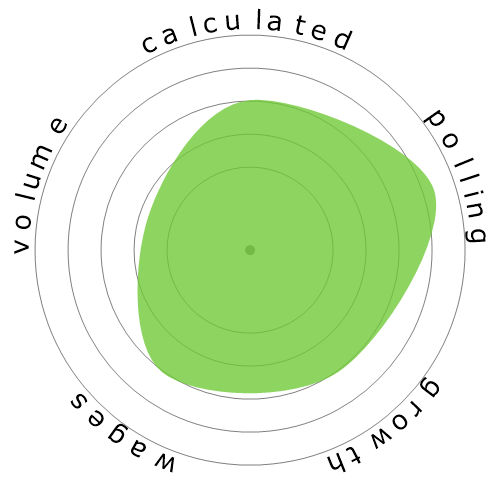Environmental Scientists and Specialists, Including Health
Where Would You Like to Go Next?
Or, Explore This Profession in Greater Detail...


What does this snowflake show?
What's this?
We rate jobs using four factors. These are:
- Chance of being automated
- Job growth
- Wages
- Volume of available positions
These are some key things to think about when job hunting.
People also viewed
Calculated automation risk
Low Risk (21-40%): Jobs in this level have a limited risk of automation, as they demand a mix of technical and human-centric skills.
More information on what this score is, and how it is calculated is available here.
User poll
Our visitors have voted there's a low chance this occupation will be automated. This assessment is further supported by the calculated automation risk level, which estimates 31% chance of automation.
What do you think the risk of automation is?
What is the likelihood that Environmental Scientists and Specialists, Including Health will be replaced by robots or artificial intelligence within the next 20 years?
Sentiment
The following graph is shown where there are enough votes to produce meaningful data. It displays user poll results over time, providing a clear indication of sentiment trends.
Sentiment over time (yearly)
Growth
The number of 'Environmental Scientists and Specialists, Including Health' job openings is expected to rise 7.3% by 2033
Total employment, and estimated job openings
Updated projections are due 09-2025.
Wages
In 2023, the median annual wage for 'Environmental Scientists and Specialists, Including Health' was $78,980, or $38 per hour
'Environmental Scientists and Specialists, Including Health' were paid 64.3% higher than the national median wage, which stood at $48,060
Wages over time
Volume
As of 2023 there were 80,730 people employed as 'Environmental Scientists and Specialists, Including Health' within the United States.
This represents around 0.05% of the employed workforce across the country
Put another way, around 1 in 1 thousand people are employed as 'Environmental Scientists and Specialists, Including Health'.
Job description
Conduct research or perform investigation for the purpose of identifying, abating, or eliminating sources of pollutants or hazards that affect either the environment or public health. Using knowledge of various scientific disciplines, may collect, synthesize, study, report, and recommend action based on data derived from measurements or observations of air, food, soil, water, and other sources.
SOC Code: 19-2041.00
Comments (2)
Reply to comment